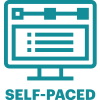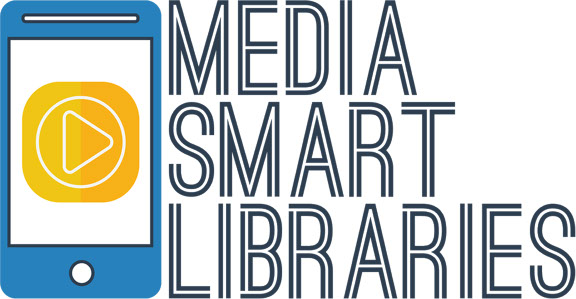 Format: Self-paced Course
Format: Self-paced Course
Developed by: Media Smart Libraries Team–University of Rhode Island
Length: 2 hours
"Media Literacy is a 21st century approach to education. It provides a framework to access, analyze, evaluate, create and participate with messages in a variety of forms — from print to video to the Internet. Media literacy builds an understanding of the role of media in society as well as essential skills of inquiry and self-expression necessary for citizens of a democracy" (Center for Media Literacy, n.d.a).
Module Objectives
Learners will:
- Understand the core concepts, competencies, and key questions of Media Literacy and apply them to deconstruct media messages
- Articulate media literacy standards and how they relate to information literacy standards and the Common Core Standards.
- Create a plan to implement a media literacy activity that demonstrates understanding of the role of school and youth librarians in teaching and developing media literacy in children and youth.
Course Design: WebJunction
 Format: Self-paced Course
Format: Self-paced Course
Developed by: Media Smart Libraries Team–University of Rhode Island
Length: 2 hours
Children and youth today live in an age of 24/7 information and it is important that they are prepared to be media literate so that they have the skills and competencies to deal with the abundance of media messages in our society. One of those forms of media is film. “YouTube has over a billion users — almost one-third of all people on the Internet — and each day those users watch a billion hours of video, generating billions of views” (YouTube, 2017, para. 1). Film education teaches children and youth to “understand how the film and moving image texts that they consume make meaning, encourages them to watch films from a variety of sources and inspires them to create films of their own. In so doing they are empowered to be culturally literate – to be able to ‘read’ the films and moving image texts they see every day and ‘write’ their own for others to watch too” (Bradford City of Film, 2014, para. 1).
In this module, public librarians and school librarians will learn about film education, instructional practices and strategies, programming, how to facilitate film discussions, and develop activities and lessons appropriate for children and youth. Since it is important that children and youth also be creators of media, youth and school librarians need to learn about the importance of filmmaking and the film production process.
Module Objectives
Learners will:
- Critically analyze film using a film discussion guide
- Develop plans for implementing film and filmmaking programming in their library
- Describe why librarians should bring meaningful film programming and hands-on digital media education into school and public libraries
Course Design: WebJunction
 Format: Self-paced Course
Format: Self-paced Course
Developed by: Media Smart Libraries Team–University of Rhode Island
Length: 2 hours
Teaching kids to code has become an important national movement to inspire computational thinking and prepare them for STEAM fields. They are not just learning to code; they are coding to learn. Through mathematical and computational ideas (such as variables and conditionals), they are also learning strategies for solving problems, designing projects, and communicating ideas.
Module Objectives
Learners will:
- Understand basic concepts of computational thinking and the connection to coding
- Learn why computational thinking is an important literacy and how it contributes to other areas in our lives as a thinking process
- Justify coding within the mission of libraries
- Develop plans for implementing programming in their library that integrates computational thinking concepts
Course Design: WebJunction


